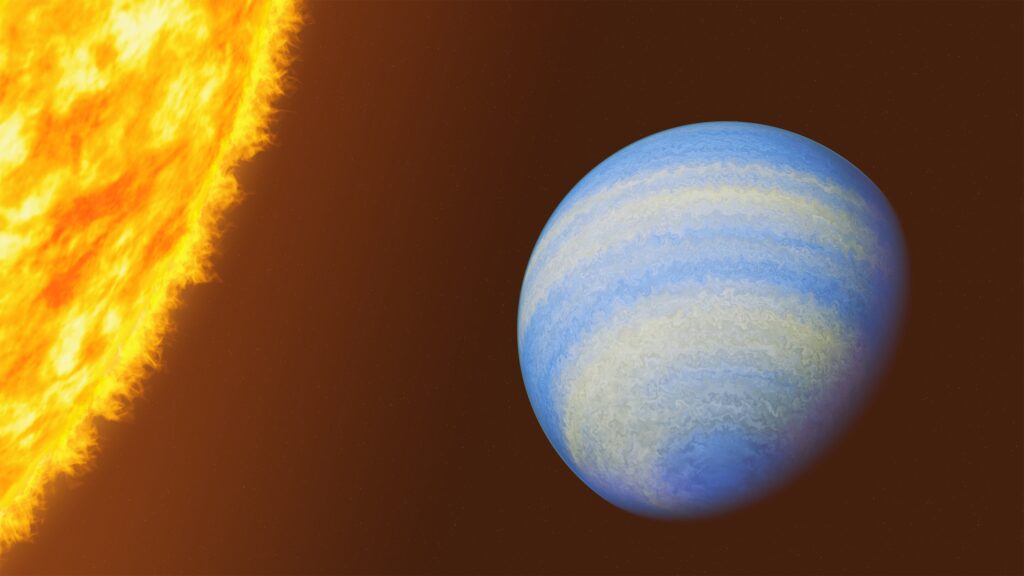Scientists have discovered a “hot Jupiter” HD 189733 b, located at a distance of 64 light-years from us. They found a hydrogen sulphide molecule in the atmosphere of this gas giant, which is an important component of biochemical processes. However, this also means that this exoplanet could smell like rotten eggs.

Exoplanet HD 189733 b
It is located very close to its host star, so it has long been known that conditions on it are hellish. However, scientists from Johns Hopkins University were able to discover a surprising new feature about it.
HD 189733 b could smell like rotten eggs if we could safely breathe in its hot air. After all, hydrogen sulphide was found in the exoplanet’s atmosphere. It is responsible for this unpleasant smell. However, this substance is also an important component of many biochemical processes.
Hydrogen sulfide is a large and very important molecule. Scientists generally assumed that they would be able to find it on many gas giants in other star systems. But its presence on HD 189733 b still means a lot to scientists.
What the new study says
In addition to detecting hydrogen sulphide, the researchers were able to accurately determine the amount of water, carbon dioxide, and carbon monoxide in the atmosphere of HD 189733 b. It also turned out that the planet contains methane. These discoveries are not so sensational in themselves.
These are the substances that scientists expected to find. What is important is that the composition of HD 189733 b’s atmosphere turned out to be exactly as it should have been. This means that the current theories of the formation of such worlds are correct. Since its discovery in 2005, this gas giant has been a model world for scientists. It is close and transiting, but it is also extremely typical.
This means that its atmosphere is relatively easy to study and the results will be valid for all similar worlds. It is too hot for life to exist on it. But a similar composition is present on colder planets, and their atmospheres are worth a closer look.
One of the unexplored issues is the correlation between the mass of a planet and its metal content. It is believed that the lighter the world, the more metals there are, because massive gas giants “pull” a lot of hydrogen and helium. However, this pattern is clearly established only for the planets of the Solar System. For exoplanets, scientists continue to test it.
Based on materials from phys.org

